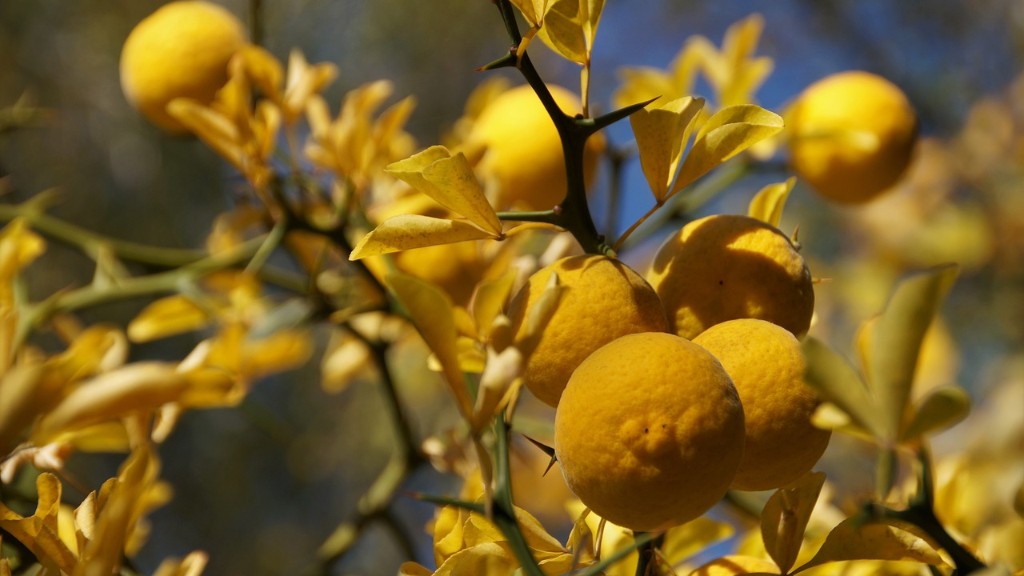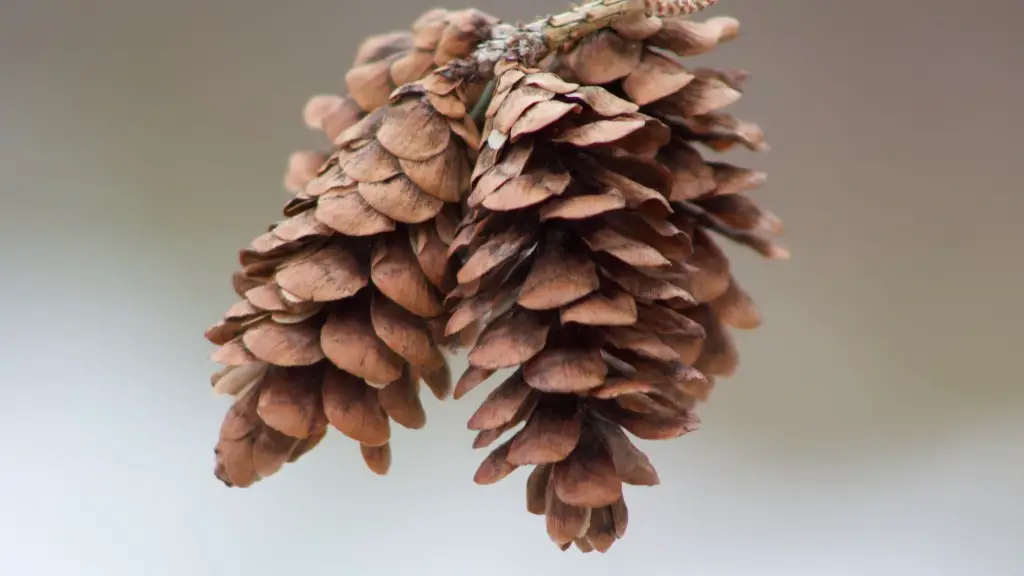Mature lemon trees yield plenty of lemons that can be ripened off the tree. It’s essential to pick ripe lemons since an unripened lemon can be tough, acidic and sour. Ripe lemons are sweeter, juicier and much more flavorful. With a few simple steps, you can easily pick ripe lemons off your tree and enjoy them in any dish.
First, inspect the lemons on the tree. Ripe lemons look bright and yellow, and are heavier than green or under-ripe lemons. Feel each lemon for firmness and give it a gentle squeeze. If it’s firm, then it’s ripe and ready to be picked. Also, check the base of the lemon for any cuts or brown spots which are signs of rot or being overripe.
Second, use scissors to snip the stem of the fully ripe lemons. Don’t pull on the fruit since that could damage the tree and the remaining lemons on the tree. When using scissors, always make sure to snip the stem cleanly to avoid creating any jagged edges.
Third, use a ladder or picking pole to reach the highest lemons on the tree. This is important since many high-hanging lemons are found in advanced states of ripeness, and they need to be harvested as soon as possible. While using the ladder or pole, be sure to be gentle and never attempt to shake the tree or pick the lemons with too much force.
Fourth, harvest the lemons carefully and place them in an open-topped container. An ideal container for harvesting should be large enough to contain the collected lemons with enough space for you to hold the container comfortably. You can also use a harvesting bag attached to your waist or belt for an easier picking experience.
Finally, store the collected lemons in a cool and dry place away from direct sunlight. If you wish to freeze the lemons, you can wrap them in plastic bags and store them in the freezer. When using the frozen lemons, make sure to thaw them out completely before use.
How To Know If The Lemons Are Ripe?
Knowing when to pick ripe lemons off of the tree is an important part of harvesting. Generally, mature lemons are ready to be picked when they’re bright yellow or orange in color, and hefty in weight. To test the firmness of the lemon, give it a gentle squeeze. If the lemon feels firm and juicy on the inside, then it is ripe and ready to be harvested. Don’t be afraid to give the lemon a visual inspection too by checking for cuts, spots, or browning as this could signal that the lemon is overripe.
How To Pick Lemons Off The Tree?
When its time to pick lemons off the tree, be sure to use the right tools. A pair of clean, sharp scissors will do the job in snipping the stem of the ripe lemons. Don’t pull off the lemons as this can damage the tree and the remaining lemons on the tree. In order to reach the higher lemons on the tree, a ladder or picking pole will come in handy. Make sure to be gentle when handling the tree and the lemons to avoid any unnecessary damage.
How To Store The Ripe Lemons?
Once ripe lemons have been harvested off the tree, its important to store them properly in order to preserve their quality. The best way to store ripe lemons is in a cool and dry place away from direct sunlight and dampness. For long-term storage, lemons can be wrapped in plastic and frozen until needed. When ready to use the frozen lemons, allow them to thaw completely before use.
Are Unripe Lemons Edible?
Unripe lemons may not be desirable to eat as they are usually sour, tart, and acidic in flavor. Unripe lemons can however be used in the production of jams and preserves as the high acidity present in unripe lemons aids in the preservation of the food product. An unripe lemon is also much harder in texture to bite into and may contain less juice than a ripe one.
What Can Overripe Lemons Be Used For?
Lemons can become overripe in certain conditions such as excessive heat and direct sunlight. When overripe, lemons can become quite soft and may look discoloured or contain brown spots or cuts. Overripe lemons are still usable in the kitchen and make great additions to baked goods or marinades. They can also be juiced for use in dressings or blended for use in soups or sauces.


